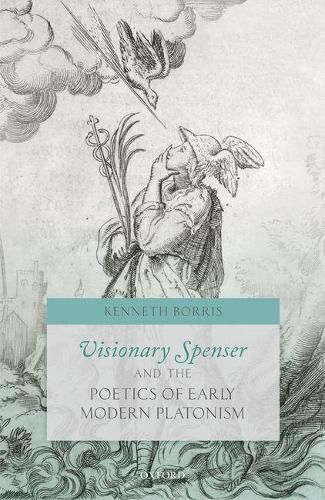Visionary Spenser and the Poetics of Early Modern Platonism
Kenneth Borris (Professor, Department of English, McGill University)

Visionary Spenser and the Poetics of Early Modern Platonism
Kenneth Borris (Professor, Department of English, McGill University)
Platonic concerns and conceptions profoundly affected early modern English and continental poetics, yet the effects have had little attention. This book defines Platonism’s roles in early modern theories of literature, then reappraise the Platonizing major poet Edmund Spenser. It makes important new contributions to the knowledge of early modern European poetics and advances our understanding of Spenser’s role and significance in English literary history.
Literary Platonism energized pursuits of the sublime, and knowledge of this approach to poetry yields cogent new understandings of Spenser’s poetics, his principal texts, his poetic vocation, and his cultural influence. By combining Christian resources with doctrines of Platonic poetics such as the poet’s and lover’s inspirational furies, the revelatory significance of beauty, and the importance of imitating exalted ideals rather than the world, he sought to attain a visionary sublimity that would ensure his enduring national significance, and he thereby became a seminal figure in the English literary line of vision including Milton and Blake among others. Although readings of Spenser’s Shepheardes Calender typically bypass Plato’s Phaedrus, this text deeply informs the Calender’s treatments of beauty, inspiration, poetry’s psychagogic power, and its national responsibilities. In The Faerie Queene, both heroism and visionary poetics arise from the stimuli of love and beauty conceived Platonically, and idealized mimesis produces its faeryland. Faery’s queen, projected from Elizabeth I as in Platonic idealization of the beloved, not only pertains to temporal governance but also points toward the transcendental Ideas and divinity. Whereas Plato’s Republic valorizes philosophy for bringing enlightenment to counter society’s illusions, Spenser champions the learned and enraptured poetic imagination, and proceeds as such a philosopher-poet.
This item is not currently in-stock. It can be ordered online and is expected to ship in approx 4 weeks
Our stock data is updated periodically, and availability may change throughout the day for in-demand items. Please call the relevant shop for the most current stock information. Prices are subject to change without notice.
Sign in or become a Readings Member to add this title to a wishlist.


